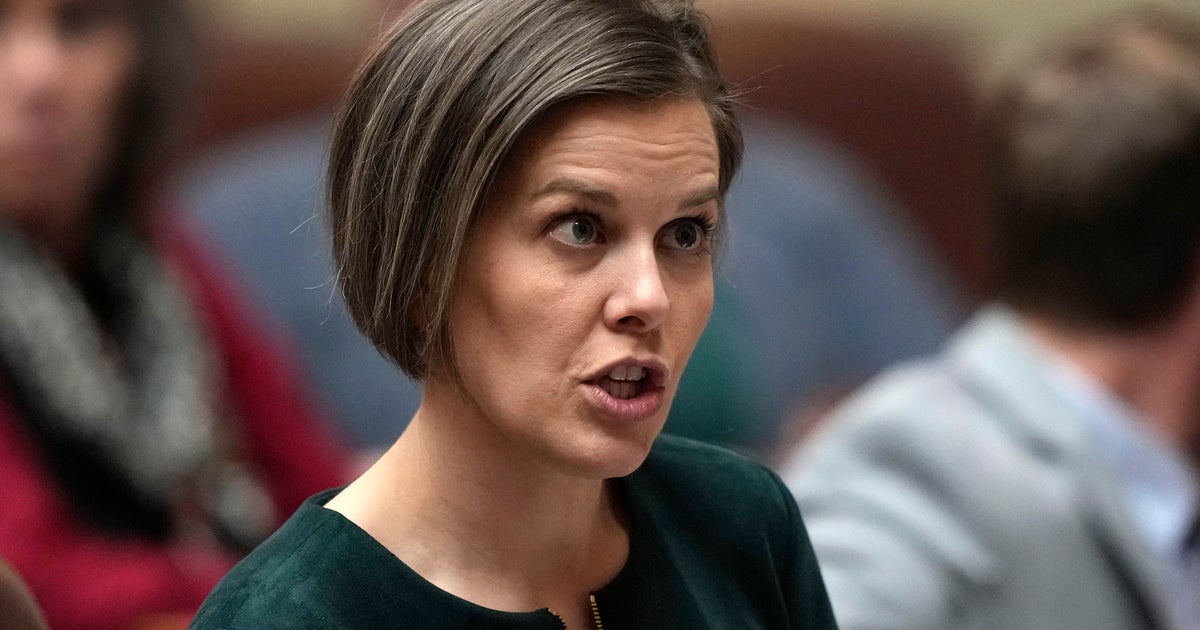Washington – Supreme Court on Tuesday It is now restored The right to vote in the government parliament after being punished for the position of social media that has identified a transgender student.
The Supreme Court granted a relief request in the emergency situations requested by Laurel Libby, which represents the House 90, and was controlled by its colleagues on a post on social media that criticized the state to allow sexually transgender athletes in general secondary schools to compete in girls’ sports. Online publication was called from a transgender sportsman who competed in the state’s path and field championship.
Judges Sonia Sotomoor and Kitanji Brown Jackson spent the Supreme Court’s decision to grant a judicial order.
Libby shared the post, which raised its punishment on Facebook in February and included the photos and the name of the athlete, who ranked first in the pole cellar girls. Min allows transgender students to participate in athletics according to their sexual identity. The Ministry of Justice has filed a lawsuit against the state’s Ministry of Education based on its policy, which the Trump administration says a discrimination against women in violation of the ninth bank. The lawsuit came after President Trump The executive order signed In February, with the exception of girls and women transgender women from competing for sports teams that are in line with their sexual identity.
In response to a Libyan social media publication, Maine’s house is blamed. The decision stated that Libyan refused to remove his position after warning her against being at risk to the athlete and said, “It is a basic principle of policy and good moral personality that children should not be targeted by adult politicians, especially when this targeting can lead to serious harm.”
The procedure blamed Libyan to “accept full responsibility for the accident and publicly apologize to the House of Representatives and to the residents of Maine.” Libyan concluded that “it must be compatible with itself in a way that follows the highest criteria of legislative behavior.
After the decision was approved by the State Council, a Libyan was brought to the Chamber’s well and ordered an apology. When she refused to do this, the Speaker of Parliament found her in violation of the Maine base in Main State for centuries, which prevented a member of a violation of the commission’s rules from participating in discussions or voting on matters before “the member satisfies.”
Lippi and six of its voters filed a lawsuit against the Federal Court to obtain its right to vote at the Maine’s house, which was restored. The Federal Provincial Court refused to provide them with the initial relief, and the American Court of Appeal rejected the first department to seek intervention.
In an emergency relief request from the Supreme Court, Lebi said that her voters had no equal representation in the room. The punishment leaves them “without a voice or vote on every bill coming to the land of the house for the rest [Libby’s] A Libyan was first elected in the state legislative council in 2020, and its current period will continue until 2026.
But the public prosecutor in the state of Mine Harun Fry argued that a Libyan was seeking the Supreme Court interference in a “dispute within Parliament”, if granted, will penetrate the legislative immunity of basic legislative actions.
He wrote: “The authority of a legislative body has been recognized to punish its members in public law since ancient times and was devoted to the United States’ constitution and many state constitutions, including Maine, since the birth of our republic.” Likewise, the floor voting law to determine whether the measure succeeds or fails is an integral work in the legislative process. The irregular matter that directs how these processes can be revealed inconsistent with the policy of isolating the legislative activity from the “external interference” that is subject to penetration from these operations.
When writing in the opposition, Jackson criticized the Supreme Court’s decision to grant Libyan relief in emergency situations at this stage of procedures and said that in recent years it was very fast in intervention.
Jackson wrote: “Reducing the standards of our court to grant relief in emergency situations, for me, is an unfortunate development,” adding that the way the Supreme Court deals with stab wounds in emergency situations – quickly without a complete briefing and oral argument – are “models to make proper decisions.”
She continued: “At least, by lowering the tape to grant relief in emergency situations, the court itself will bear the responsibility of the resulting systematic disorder, as a rise in requests for our” extraordinary “intervention – in the previous and early stages of the continuous minimal court procedures, and with a greater and larger frequency – will undoubtedly follow.”


